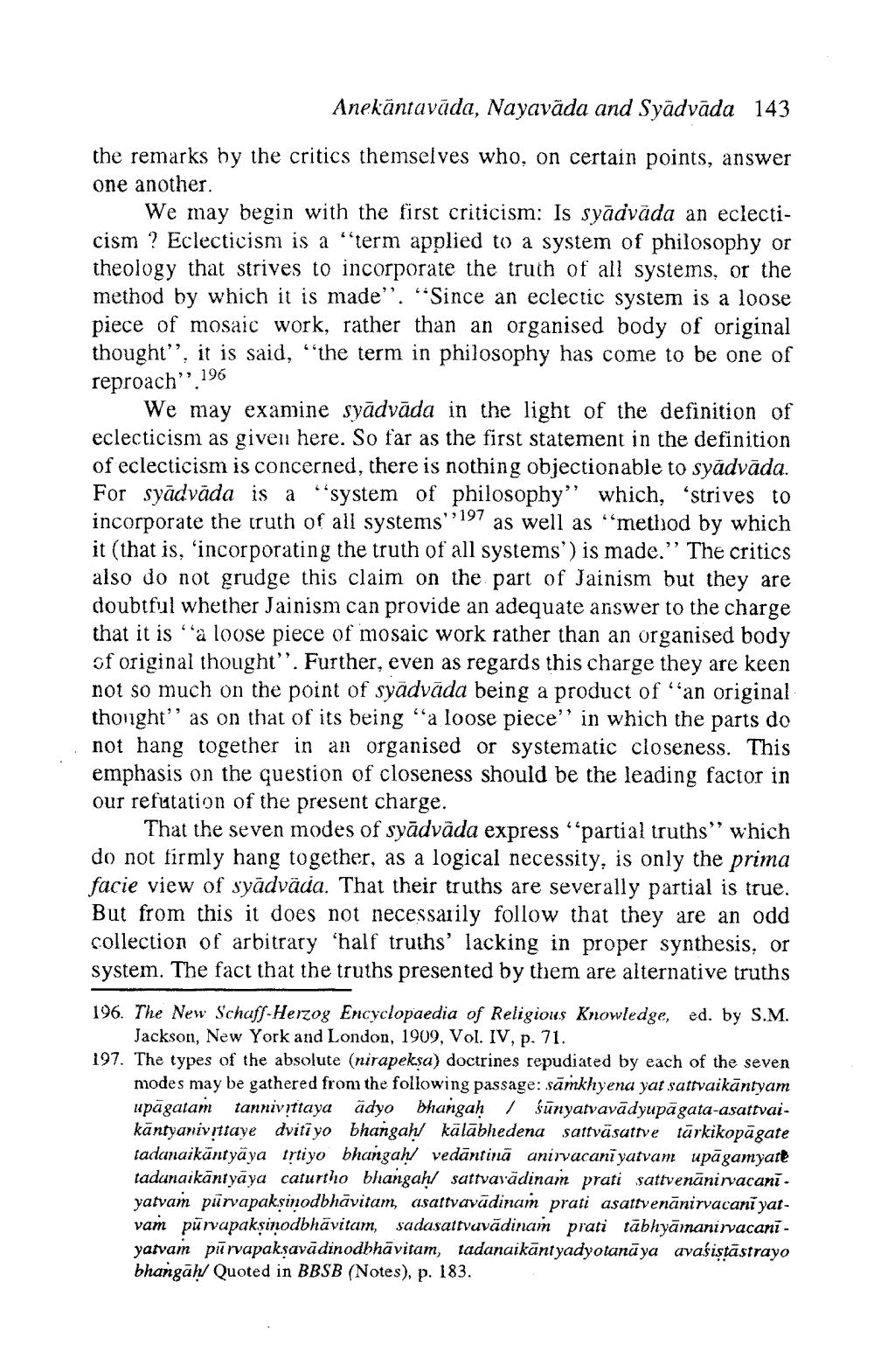________________
Anekāntavāda, Nayavāda and Syādvāda 143
the remarks by the critics themselves who, on certain points, answer one another.
We may begin with the first criticism: Is syādvāda an eclecticism ? Eclecticism is a "term applied to a system of philosophy or theology that strives to incorporate the truth of all systems, or the method by which it is made”. “Since an eclectic system is a loose piece of mosaic work, rather than an organised body of original thought", it is said, “the term in philosophy has come to be one of
reproach”. 196
We may examine syadvāda in the light of the definition of eclecticism as given here. So far as the first statement in the definition of eclecticism is concerned, there is nothing objectionable to syādvāda. For syādvāda is a "system of philosophy” which, 'strives to incorporate the truth of all systems":197 as well as “method by which it (that is, 'incorporating the truth of all systems') is made.” The critics also do not grudge this claim on the part of Jainism but they are doubtful whether Jainism can provide an adequate answer to the charge that it is a loose piece of mosaic work rather than an organised body of original thought". Further, even as regards this charge they are keen not so much on the point of syādvāda being a product of an original thonight'' as on that of its being "a loose piece'' in which the parts do not hang together in an organised or systematic closeness. This emphasis on the question of closeness should be the leading factor in our refutation of the present charge.
That the seven modes of syādvāda express ''partial truths" which do not firmly hang together, as a logical necessity, is only the prima facie view of syādväda. That their truths are severally partial is true. But from this it does not necessarily follow that they are an odd collection of arbitrary ‘half truths' lacking in proper synthesis, or system. The fact that the truths presented by them are alternative truths
196. The New Schaff-Herzog Encyclopaedia of Religious Knowledge, ed. by S.M.
Jackson, New York and London, 1909, Vol. IV, p. 71. 197. The types of the absolute (nirapeksa) doctrines repudiated by each of the seven
modes may be gathered from the following passage: samkhyena yat sattvaikāntyam upāgatam tannivıttaya ädyo bhangah / sūnyatvavādyupāgata-asattvai. käntyanivitiaye dvitiyo bhangah/ kālābhedena sattvāsattve tārkikopāgate tadanaikāntyāya trtiyo bhangah vedāntinā anirvacani yatvam upāgamyatt tadanaikantyaya caturtho bhangah/ sattvarādinam prati sattvenānivacani. yatvam purvapaksinodbhāvitam, asattvavādinam prati asattvenanirvacani yatvam pūrvapakșinodbhāvitam, sadasattvavādinam prati tābhyāmanirvacani - yatvam purvapaksavādinodbhāvitam, tadanaikāntyadyotanāya avasistāstrayo bhangah/ Quoted in BBSB (Notes), p. 183.




